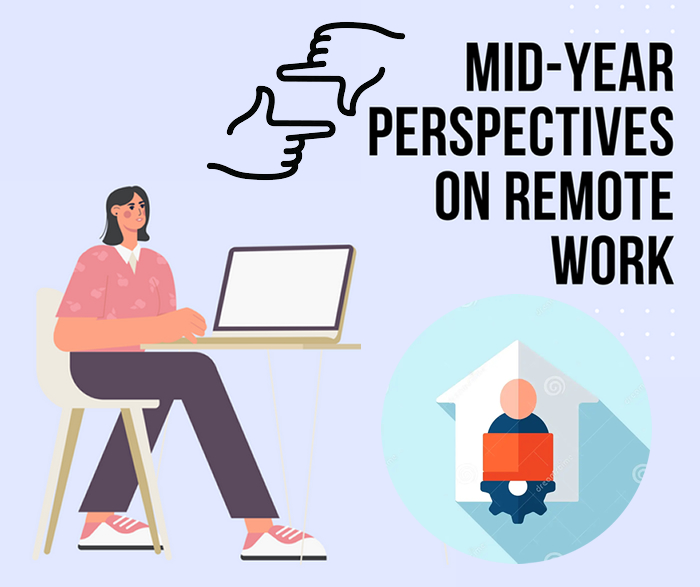Mid-Year Perspectives on Remote Work

Working from home has become the norm in many organizations… but it is not always the right approach for every situation.
WORKING FROM HOME OR IN THE OFFICE?
Before the pandemic, working from home was a luxury. People looked forward to those days without long commutes, when they could sleep in or walk the dog.
Then came the health restrictions of the COVID-19 pandemic.
Post-pandemic, the number of work from home jobs has grown, and many organizations are adopting remote work and pay policies. In fact, a recent study found that there are now over 57 million remote workers in the United States.
In April, a poll conducted by Employers Group for the Los Angeles County Business Federation (BizFed) found that almost 72% of Los Angeles area business leaders expect that some or all of their employees will continue to work remotely some or all of the time – an increase from 68.5% in 2022 and 62% in 2021.
DO YOU HAVE CHOICES? YES!
Organizations have either willingly or by default moved into the work from home model. But there are still critical In-Office benefits that need to be balanced with alternative work from home options.
In short, working from home could become business as usual ….
But is it the right answer for every job and for every organization? NO!
WORK AT HOME RISKS?
Data security
IT Support / Cybersecurity
Employment law compliance (wage and hour)
Taxes (location differentials, collection and remittances)
Workers’ Comp/Injury & Travel Liability
IN OFFICE BENEFITS
Staff is on-site for critical jobs requiring immediate and day-to-day collaboration (Finance, Legal, Marketing, Human Resources, IT and Business Planning)
Access to centralized resources (training programs, mentorship and career development and networking opportunities)
Compensation Risks – There are a number of home pay issues.
Pay equity: Should there be differentiation between those who have returned to work versus those who remain working from home?
Flexibility: Work from home pay policies can create compensation disparity issues.
Salary compression: Salaries of remote workers may be paid less than their in-office counterparts when employers believe that remote workers have lower expenses, such as commuting costs.
How can employers mitigate Work from Home risks and capitalize In-Office benefits?
- Establish clear policies and procedures for remote work and make sure your employee handbook contains a comprehensive and updated Remote Work policy
- Provide employees with the tools and resources needed to work from home effectively
- Monitor employee productivity
- Provide employees with training in remote work best practices
- Be transparent about the organization’s salary work from home expectations
Learn more about In-Office and Work from Home opportunities and pay challenges…
Click on the link below and complete our Compensation Assessment to set up a complementary 20-minute consultation with our specialists.
Compensation Assessment